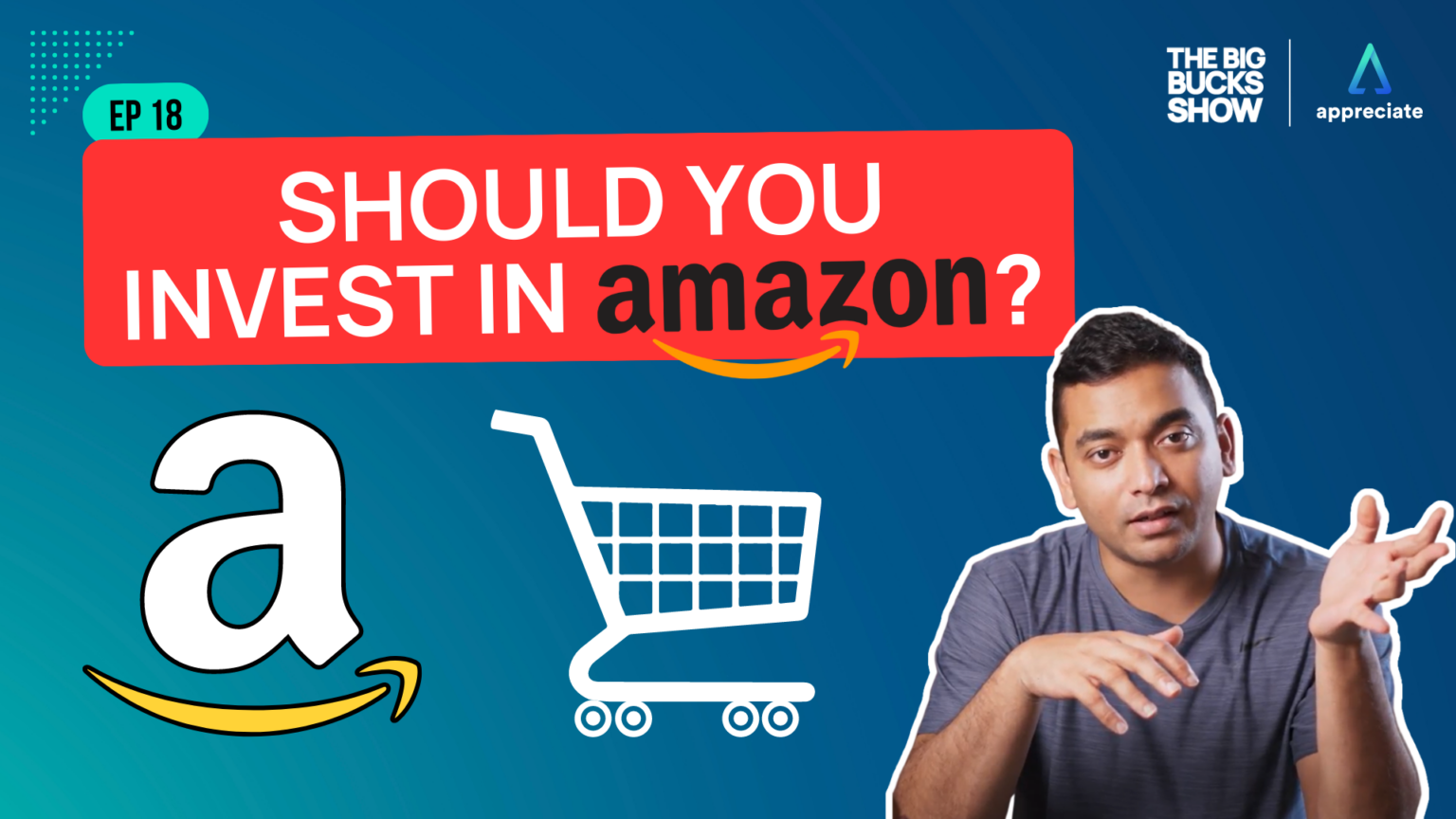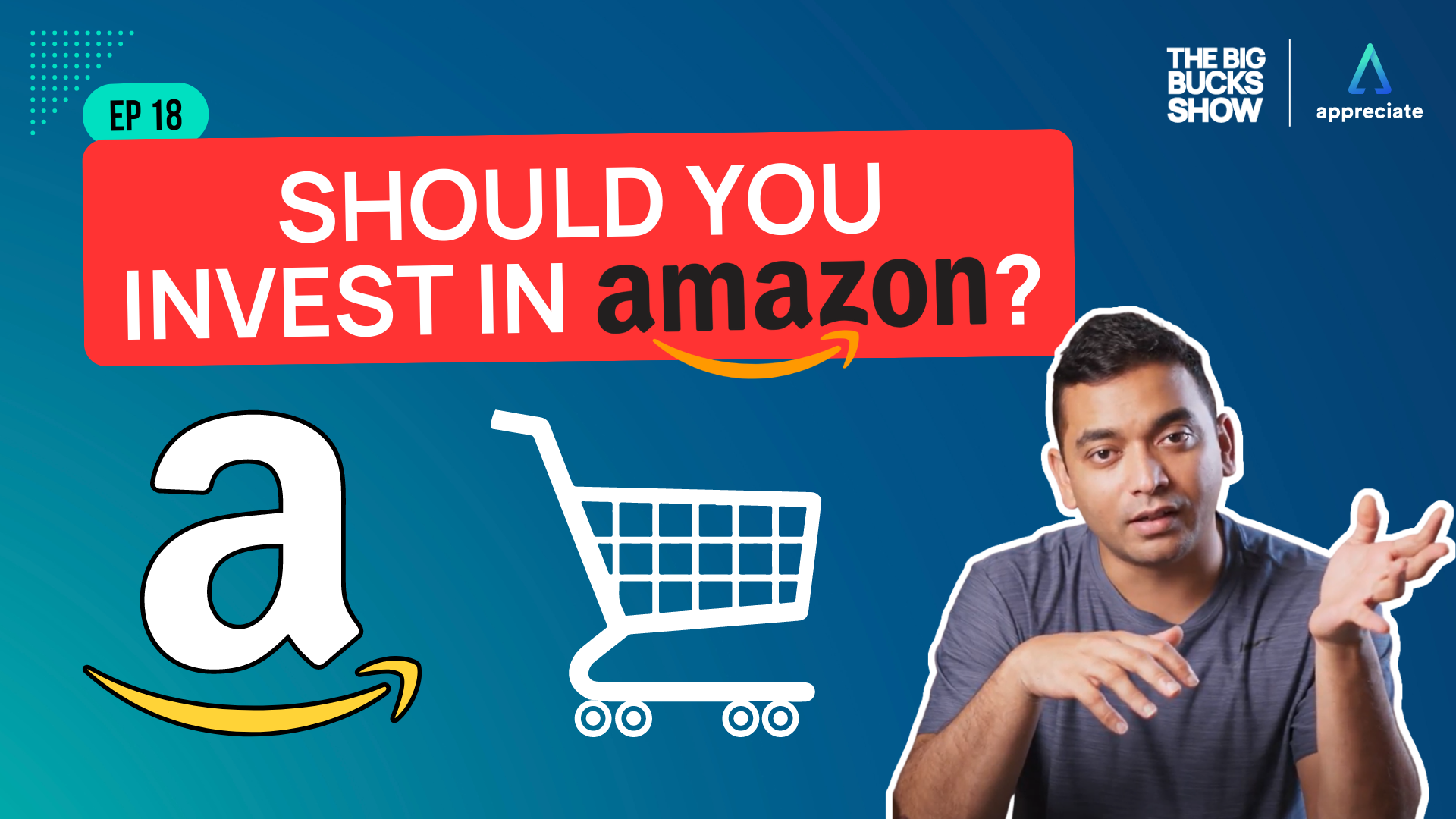A global leader in e-commerce and cloud computing, Amazon is one of the largest companies in the world. It provides a comprehensive online marketplace featuring everything, from electronics to apparel, furniture to toys, and much more. It also provides video and music streaming services. In addition, Amazon’s cloud and IT services (in the form of Amazon Web Services, or AWS) can build and deploy a broad range of applications. Not bad for what used to be just an online bookstore!
So, should you consider investing in this tech giant? Let’s break down the financial data to make an informed decision.
Amazon’s investment potential: How big is it?
The appeal of owning shares in a company you deal with frequently may be understandable, but the perspective of a customer is very different from that of an investor.
While past performance and current price may be useful indicators, it’s not wise to buy a stock based purely on that data. Be sure to assess Amazon as an investment by scrutinising its fundamental merits. Thus, it’s crucial to evaluate the company’s management, revenue, profits, and competitors.
And how would you do that? There are a few parameters that act as performance indicators. What can help you decide if Amazon can own a place in your investment portfolio?
- Revenue
- Revenue growth, and
- Operating margin
So, how has Amazon been performing in the last few fiscal years in the above respects?
| Years/Metrics | Revenue in billion USD | Revenue growth | Operating margin (at the end of the year) |
| 2018 | 232.89 | 30.93% | 4.84% |
| 2019 | 280.52 | 20.45% | 4.98% |
| 2020 | 386.06 | 37.62% | 6.26% |
| 2021 | 469.82 | 21.7% | 8.12% |
| 2022 | 513.98 | 9.4% | -1.15% |
| 2023 (TTM) | 524.89 | 2.12% | N/A |
When analysing a business’s revenue, it is essential to look at its revenue growth over time rather than just the revenue for the previous year. For a successful company, consistency in revenue speaks volumes.
The operating margin tells investors how effectively the company manages its expenses, which is critical for profitability. It also determines the amount of revenue converted to profit after operating expenses have been accounted for.
Post-pandemic growth
As more people shopped online during the pandemic, the world grew ever more reliant on well-established supply chains. No surprise then that Amazon experienced accelerating growth. Further, Amazon Web Services (AWS) grew due to the growing use of cloud-based services.
Amazon’s revenue increased by 22% in 2021, the operating margin rose to 8.12%, and earnings per share grew 34%.
Also, the average revenue estimates for 2023 and 2024 look promising.
| Year | Revenue in billion USD | Sales growth |
| Current year (2023) | 569.63 | 10.80% |
| Next year (2024) | 637.08 | 11.80% |
Amazon’s core growth engines remain strong
Here are Amazon’s six main revenue generators, along with the revenue they generated in 2022:
- Online stores ($220B)
- Third-party seller services ($117.71B)
- AWS ($80B)
- Advertising ($37.74B)
- Subscription services ($35.22B)
- Physical stores ($18.96B)
This means that in 2022, Amazon generated more than $500 billion in revenue!
Moreover, investors should remember that AWS generates higher profit margins than Amazon’s retail business, accounting for the majority of Amazon’s operating profits. AWS’ operating profit in 2022 was nearly $23 billion, and accounted for 100% of Amazon’s operating profit, as its main retail business is still unprofitable.
How has the stock been performing?
In the last ten years, Amazon’s stock price has gone up around 1000%, rising from $14.29 to $140.57 (taking into account stock splits).
If we look at the stock performance since 2020 began, it’s definitely quite impressive, with a whopping 750% rise in just 2020. And its stock price has nearly doubled this year.
| Year | Average stock price$ | Year high$ | Year low$ | Annual Change% |
| 2019 | 18.23 | 28.73 | 11.93 | 25.70% |
| 2020 | 96.66 | 235.22 | 24.08 | 743.44% |
| 2021 | 260.00 | 409.97 | 187.67 | 49.76% |
| 2022 | 263.09 | 399.93 | 109.10 | -65.03% |
| 2023 | 202.49 | 293.34 | 108.10 | 94.64% |
So, who are the major investors in AMZN?
As of August 2023, around 60% of the outstanding shares of Amazon are owned by institutional investors. This is a higher level of interest than at virtually every other company in the Internet Retail industry.
As per the latest institutional activity as of 30 June 2023, the following firms have purchased AMZN shares:
- GQG PARTNERS LLC bought 15.5 million shares
- PORTSIDE WEALTH GROUP LLC bought 9.3 million shares
- BMO ASSET MANAGEMENT CORP. bought 6.5 million shares
The top institutional holders of Amazon shares are as follows:
- Vanguard Group, Inc. (The) – 6.68%
- Blackrock Inc. – 3.73%
- State Street Corporation – 3.24%
- FMR, LLC – 2.49%
- Price (T.Rowe) Associates Inc – 1.85%
So, should I invest in Amazon?
It is important to take those figures with a grain of salt, but we have seen Amazon go through lots of higher spending cycles before. Every time Amazon announces it’s ramping up spending, detractors claim it’s losing momentum, ignoring the fact that it continues to lead the e-commerce and cloud infrastructure market.
Underdogs are generally viewed negatively when they increase their spending to catch up with market leaders, but market leaders like Amazon increase their spending to maintain their dominance.
We believe Amazon’s stock could still rise substantially over the next few years, compared to other high-growth e-commerce and cloud stocks.
While AMZN is a high-value stock, you can easily own a piece of the pie at a significantly lower price, by investing in it through ETFs with fractional ownership. Appreciate’s Fractions feature lets you invest in stocks like Amazon for as little as ₹1!






